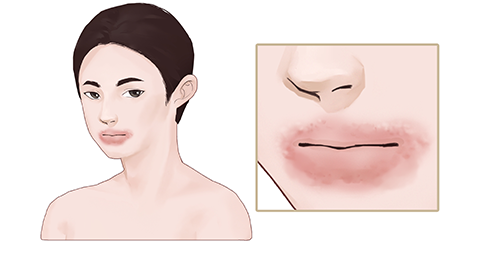What are the symptoms of fennel allergy?
General symptoms of anise allergy include skin itching and rashes, oral and throat discomfort, gastrointestinal dysfunction, abnormal respiration, dizziness, and fatigue. If any abnormalities occur, prompt medical attention is recommended. Detailed explanations are as follows:

1. Skin itching and rashes: Allergic reactions often first manifest on the skin. After contact with or consumption of anise, some individuals may experience skin itching, followed by the appearance of rashes or hives. These rashes may appear on the face, neck, arms, and other areas, causing significant discomfort. Scratching may worsen the symptoms.
2. Oral and throat discomfort: After consuming anise, allergic reactions may occur in the mouth and throat, presenting as oral pricking sensations, numbness, throat itching, and swelling. In severe cases, swallowing may be affected, causing a sensation of a foreign body in the throat, or even hoarseness.
3. Gastrointestinal dysfunction: Anise allergy may lead to gastrointestinal system abnormalities, including common symptoms such as nausea, vomiting, abdominal pain, and diarrhea. When the gastrointestinal mucosa is stimulated by allergens, peristalsis and digestive functions may be affected, triggering gastrointestinal discomfort and impairing normal digestion and absorption.
4. Respiratory abnormalities: In severe allergic reactions, the respiratory system may be affected, causing rapid breathing, wheezing, chest tightness, and other symptoms. This occurs due to allergic reactions causing edema of the respiratory mucosa and bronchospasm, narrowing the airway and affecting normal respiratory function. In severe cases, it may even be life-threatening.
5. Dizziness and fatigue: Some individuals may experience systemic reactions after anise allergy, such as dizziness, headache, fatigue, and palpitations. This is because the allergic reaction disrupts the body's internal environment, affecting the normal functions of the nervous and circulatory systems, thereby causing these systemic discomfort symptoms.
If anise allergy is suspected, contact with or consumption of anise should be stopped immediately, and symptom changes should be observed. Individuals with mild symptoms can self-monitor, but if symptoms persist or worsen, timely medical attention is necessary.









